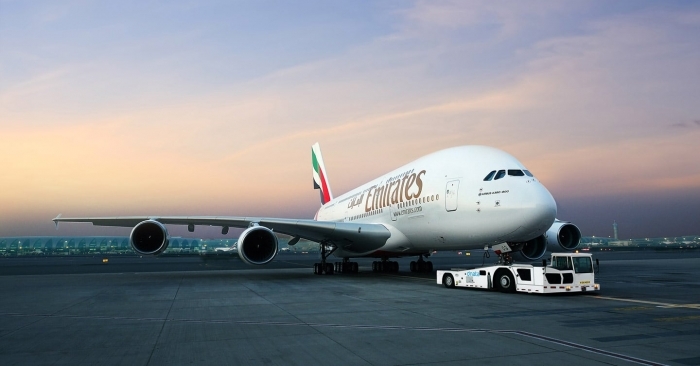Emirates FY21 cargo revenue grows 53% to $4.7 bn with 22% less tonnage
June 15, 2021: The Emirates Group today announced its first year of loss in over 30 years caused by a significant drop in revenue, fully attributed to the impact of Covid-19 related flight and travel restrictions throughout its entire financial year 2020-21.

June 15, 2021: The Emirates Group today announced its first year of loss in over 30 years caused by a significant drop in revenue, fully attributed to the impact of Covid-19 related flight and travel restrictions throughout its entire financial year 2020-21.
However, with the strong demand in air freight throughout the year, Emirates’ cargo division reported a revenue of AED 17.1 billion ($4.7 billion), an increase of 53 percent over last year.
Freight yield per freight tonne kilometre (FTKM) increased strongly by 88 percent, due to the unique pandemic situation which led to significantly reduced cargo capacity in the market worldwide.
Tonnage carried decreased by 22 percent to reach 1.9 million tonnes, due to the reduced available bellyhold capacity for the entire year. At the end of 2020-21, Emirates’ SkyCargo’s total freighter fleet stood unchanged at 11 Boeing 777Fs.
Released today in its 2020-21 Annual Report, the Emirates Group posted a loss of AED 22.1 billion ($6.0 billion) for the financial year ended March 31, 2021 compared with an AED 1.7 billion ($456 million) profit for last year.
The group’s revenue was AED 35.6 billion ($ 9.7 billion), a decline of 66 percent over last year’s results. The group’s cash balance was AED 19.8 billion ($ 5.4 billion), down 23 percent from last year mainly due to weak demand caused by the various pandemic related business and travel restrictions across all of the group’s core business divisions and markets.
Sheikh Ahmed bin Saeed Al Maktoum, chairman and chief executive, Emirates Airline and Group, said, "The Covid-19 pandemic continues to take a tremendous toll on human lives, communities, economies, and on the aviation and travel industry. In 2020-21, Emirates and dnata were hit hard by the drop in demand for international air travel as countries closed their borders and imposed stringent travel restrictions.”
“Emirates SkyCargo put in a stellar performance by rapidly responding to new demand in a changed global marketplace, contributing to 60 percent of the airline’s total transport revenue,” reads the release.
Emirates SkyCargo quickly scaled up operations and rebuilt its cargo network to meet strong demand from shippers who faced a capacity crunch when the pandemic forced airlines to drastically reduce flights. It supplemented its existing freighter capacity by bringing into service 19 "mini freighters" - modified Boeing 777-300ER passenger aircraft with seats in the economy cabin removed to make room for more cargo. The cargo division also introduced new loading protocols to safely utilise overhead bins and passenger seats to carry cargo.
In addition to supporting global supply chains for food, medical and other trade items, Emirates SkyCargo also tapped on its pharma capabilities and infrastructure to support the worldwide distribution of Covid-19 vaccines and humanitarian relief to Lebanon in the aftermath of the Port of Beirut explosions.
In October, Emirates SkyCargo set up a dedicated GDP-certified airside hub in Dubai for Covid-19 vaccines, and later it partnered with UNICEF to facilitate the rapid transport of Covid-19 vaccines to developing nations through Dubai.
Emirates’ total passenger and cargo capacity declined by 58 percent to 24.8 billion ATKMs at the end of 2020-21, due to pandemic related flight and travel restrictions including a complete suspension of commercial passenger services for nearly eight weeks as directed by the UAE government from 25 March 2020.
Emirates received three new A380 aircraft during the financial year and phased out 14 older aircraft comprising of 9 Boeing 777-300ERs and 5 A380s, leaving its total fleet count at 259 at the end of March. Emirates’ average fleet age remains at a youthful 7.3 years.
Emirates’ total revenue for the financial year declined 66 percent to AED 30.9 billion (US$ 8.4 billion). Currency fluctuations this year had no significant impact on airline revenue.
In 2020-21 dnata recorded a loss of AED 1.8 billion ($496 million) for the first time. This includes impairment charges of AED 766 million ($209 million) on goodwill and other intangible assets across all its divisions.
With reduced flight and travel activity across the world, dnata's total revenue decreased by 62 percent to AED 5.5 billion ($1.5 billion). dnata’s international business accounts for 62 percent of its revenue.



